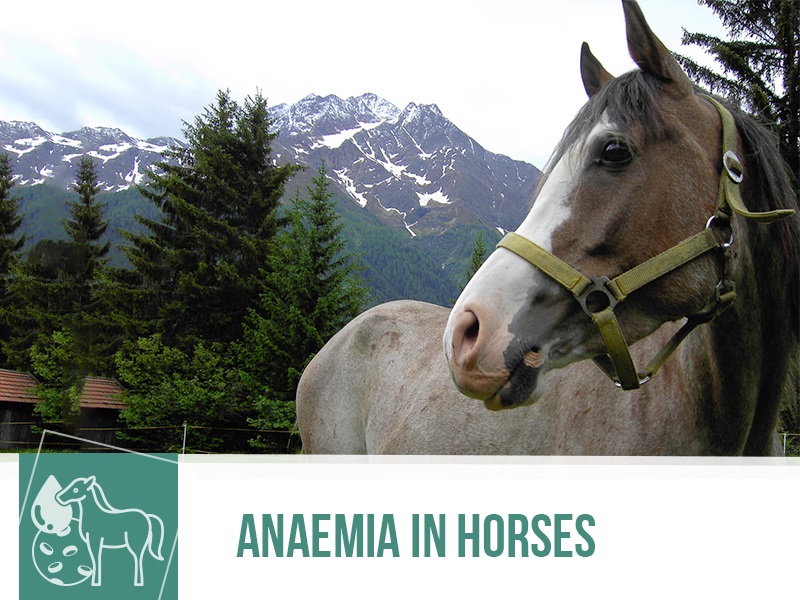
Anaemia in Horses

Anaemia is one of the most important haematological signs in mammals and horses are no exception.
It's not a disease but a signal that something might be really wrong with your animal. Anaemia manifests as a consequence of many diseases and problems that cause one or several of these:
- Loss of blood
- Destruction of red blood cells
- Lesser red blood cell production
We can classify anaemia as regenerative or as non-regenerative. The difference between these two situations is that regenerative anaemia happens because of blood loss or destruction of red blood cells and there will be a response from the bone marrow to correct this while a non-regenerative anaemia is a product of an insufficient production from the marrow to respond to loss of red blood cells.
This is usually spotted when it becomes a big enough problem to impair tolerance to exercise, depression or reduced ingestion of food. Other signs that may indicate anaemia are high respiratory rate and heartbeat, yellow tinted sclera or mucous membranes, weight loss, increased urination or pale mucous membranes, among others depending on primary cause.
Of course, many of the problems that can cause anaemia may take a long time to develop and horses may be able to create mechanisms to compensate for the lowered capacity to transport oxygen.
This leads to a sort of subclinical yet chronic anaemia that only flares up during exercise and leads to reduced performance and a very high heartbeat.
As we've mentioned, anaemia is secondary to a whole host of other issues and they include everything from trauma that causes haemorrhage, iron deficiency, kidney disease, bacterial toxins like Clostridium, autoimmune haemolytic anaemia to parasites, cancer or various viral diseases.
The underlying cause of anaemia can be a very severe condition, as stated above, so if you think your horse might be suffering from it do not hesitate to contact your vet!
Would you like to know more about horses? Check our Equine Courses:
Equine courses
Published: 10 Feb 2017
Read the previous article: Cat Colonies: Fascinating Social Environment

